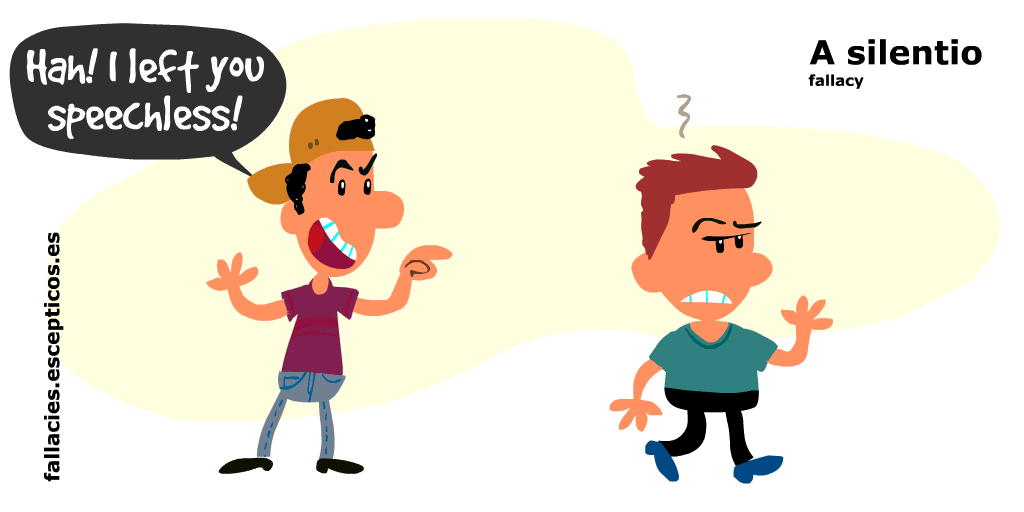Silence gives consent… well, it doesn’t!

Argumentum ex silentio or argument from silence is a fallacy where a conclusion is based upon silence or lack of evidence. In the field of classical studies, this term often refers to the assertion that an author was ignorant of a subject, based on the lack of references to it in his available writings. Although it can be valid and convincing when used in an educated guess, it is considered as a fallacy when it is used as proof coming from a logical reasoning.
Example
A: Do you know where María lives?
B: Yes, I do
A: Where does she live?
B: I’m not going to tell you.
A: You don’t know where she lives.
This conclusion is not necessarily justified; maybe B just doesn’t want to tell, or they consider the answer as confidential information.
To refute it
Remark the possible reasons to remain silent, specially those more plausible than the ones adduced by the fallacious person.
Whenever the source is not referenced, both definitions and examples have been extracted from a translation of Jaime Wilson [email protected] based on Stephen’s Guide to the Logical Fallacies. Copyright 1995-1998 Stephen Downes. Brandon, Manitoba, Canada.
These texts have been modified by Miguel A. Lerma and now by us to adapt them -and those taken from Wikipedia- to our format.